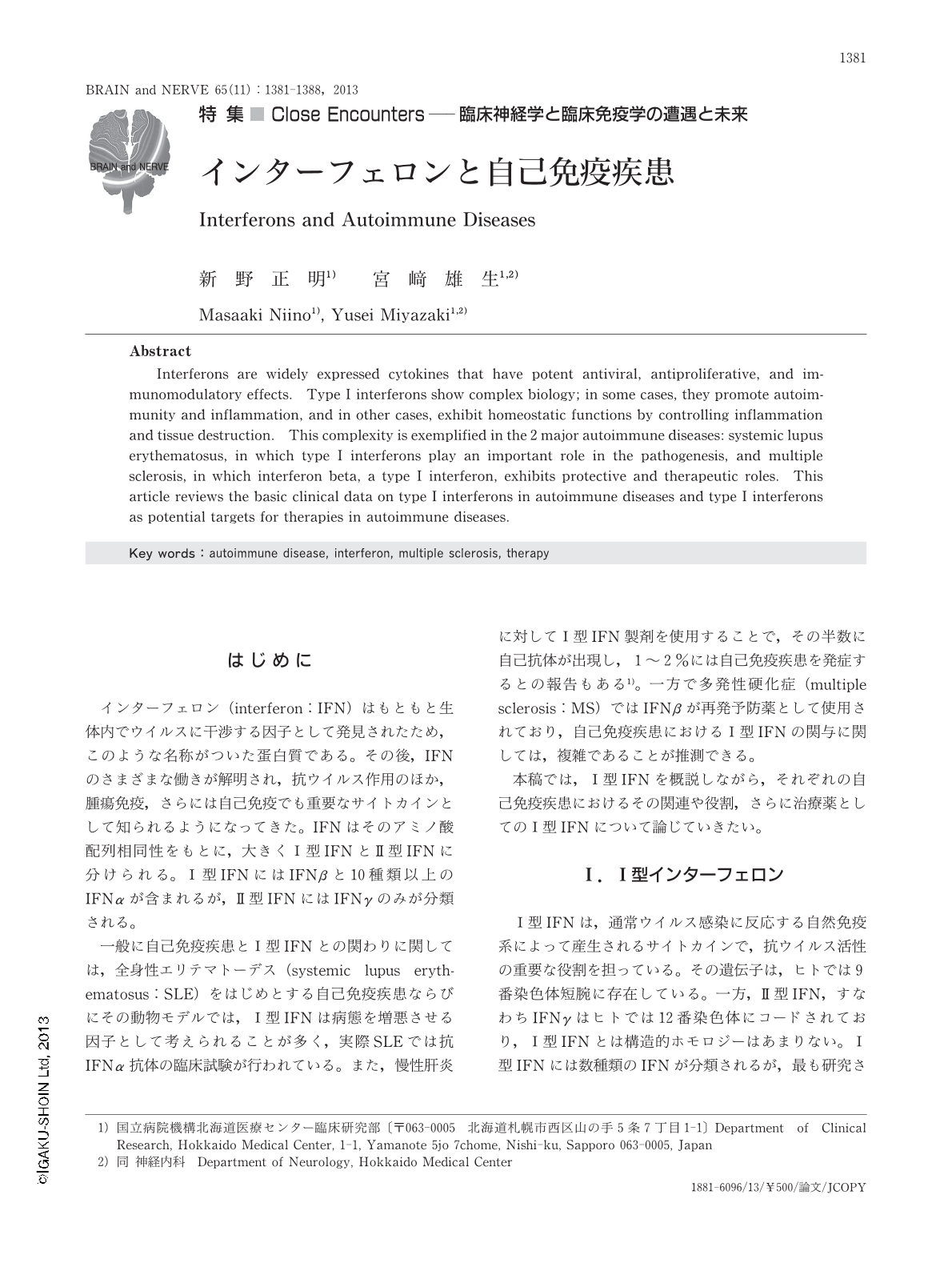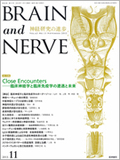Japanese
English
- 有料閲覧
- Abstract 文献概要
- 1ページ目 Look Inside
- 参考文献 Reference
はじめに
インターフェロン(interferon:IFN)はもともと生体内でウイルスに干渉する因子として発見されたため,このような名称がついた蛋白質である。その後,IFNのさまざまな働きが解明され,抗ウイルス作用のほか,腫瘍免疫,さらには自己免疫でも重要なサイトカインとして知られるようになってきた。IFNはそのアミノ酸配列相同性をもとに,大きくⅠ型IFNとII型IFNに分けられる。Ⅰ型IFNにはIFNβと10種類以上のIFNαが含まれるが,II型IFNにはIFNγのみが分類される。
一般に自己免疫疾患とⅠ型IFNとの関わりに関しては,全身性エリテマトーデス(systemic lupus erythematosus:SLE)をはじめとする自己免疫疾患ならびにその動物モデルでは,Ⅰ型IFNは病態を増悪させる因子として考えられることが多く,実際SLEでは抗IFNα抗体の臨床試験が行われている。また,慢性肝炎に対してⅠ型IFN製剤を使用することで,その半数に自己抗体が出現し,1~2%には自己免疫疾患を発症するとの報告もある1)。一方で多発性硬化症(multiple sclerosis:MS)ではIFNβが再発予防薬として使用されており,自己免疫疾患におけるⅠ型IFNの関与に関しては,複雑であることが推測できる。
本稿では,Ⅰ型IFNを概説しながら,それぞれの自己免疫疾患におけるその関連や役割,さらに治療薬としてのⅠ型IFNについて論じていきたい。
Abstract
Interferons are widely expressed cytokines that have potent antiviral, antiproliferative, and immunomodulatory effects. Type I interferons show complex biology; in some cases, they promote autoimmunity and inflammation, and in other cases, exhibit homeostatic functions by controlling inflammation and tissue destruction. This complexity is exemplified in the 2 major autoimmune diseases: systemic lupus erythematosus, in which type I interferons play an important role in the pathogenesis, and multiple sclerosis, in which interferon beta, a type I interferon, exhibits protective and therapeutic roles. This article reviews the basic clinical data on type I interferons in autoimmune diseases and type I interferons as potential targets for therapies in autoimmune diseases.

Copyright © 2013, Igaku-Shoin Ltd. All rights reserved.


